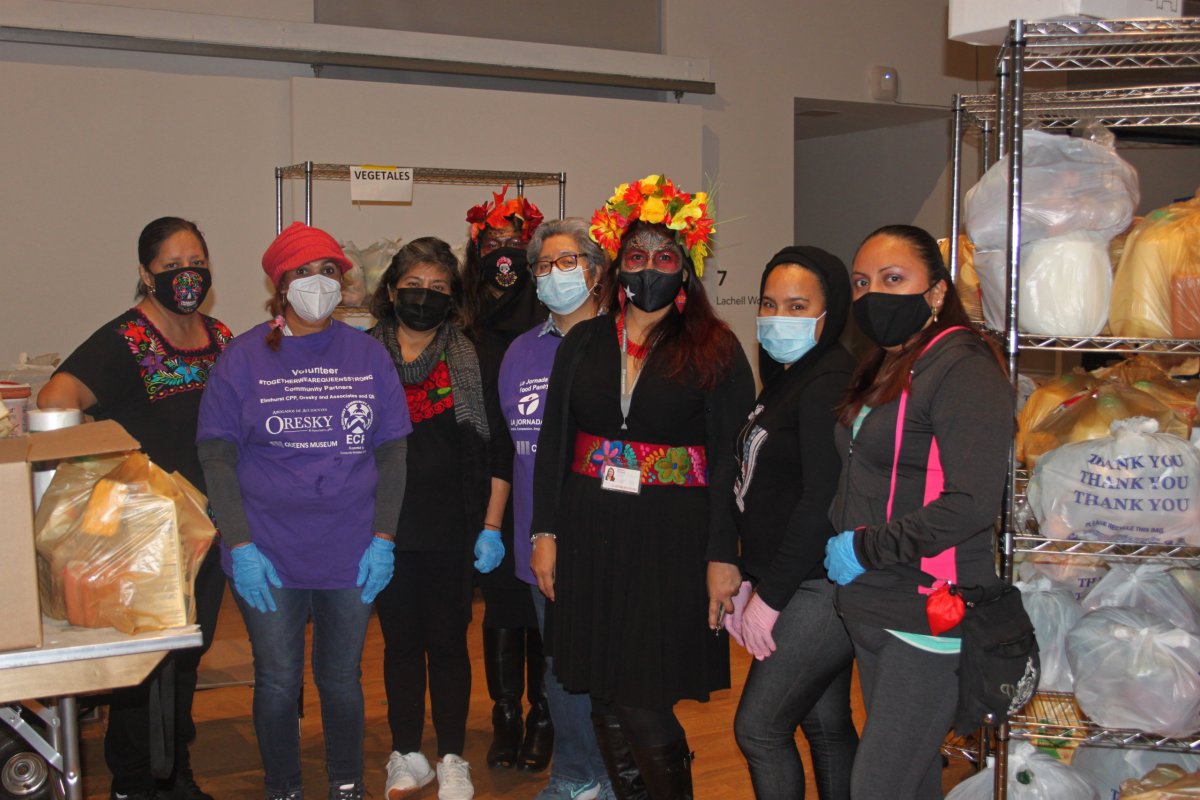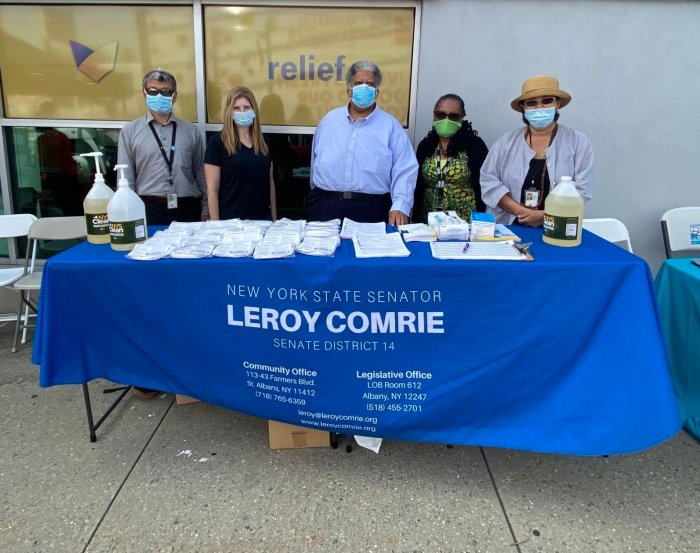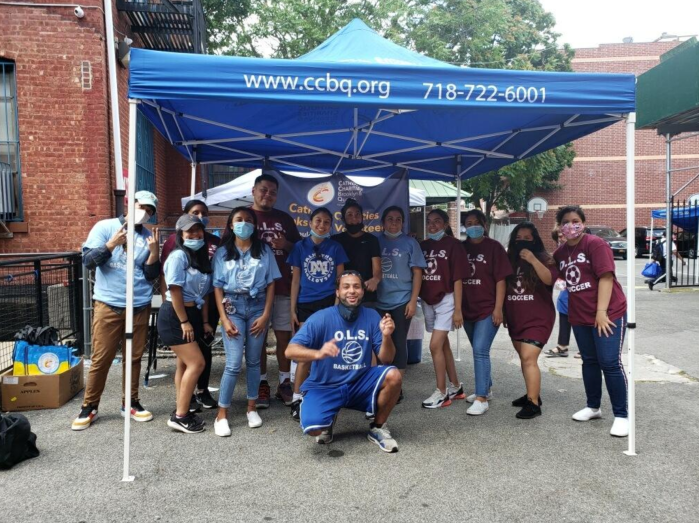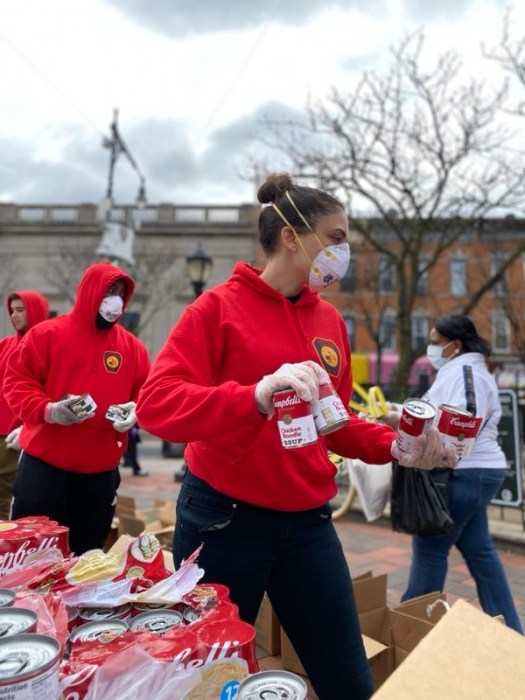La Jornada and Together We Can Food Pantry at Queens Museum hosted a special food distribution and served approximately 700 Corona families on Wednesday, Oct. 28.
The day began with a diaper and food distribution, prior to the weekly food pantry distribution. Women’s National Basketball Association player Tina Charles donated $4,000 worth of diapers to the food pantry through her organization Hopey’s Heart Foundation, after approaching Assemblywoman Catalina Cruz to ask how she could help.
“I saw Assemblywoman Cruz on MSNBC and she was showing what she does in her food pantry, and I noticed she was in Corona, Queens, and I grew up taking the Q72, being on Junction Boulevard to go to high school, my mom used to shop on Junction,” said Charles, who was born and raised in East Elmhurst. “I reached out to her on how I can help and double her impact, she connected me with Ms. Shannon of Together We Can, and we were able to curate so I could donate for the food pantry.”
Charles said it was important to serve the community where she grew up, which was one of the disproportionately hard hit communities in New York City during the height of the pandemic.
“It’s full circle, I grew up coming here for the ice skating rink back in the day before it was Queens Museum, so it’s just full circle that I’m able to give back, especially during COVID,” said Charles.
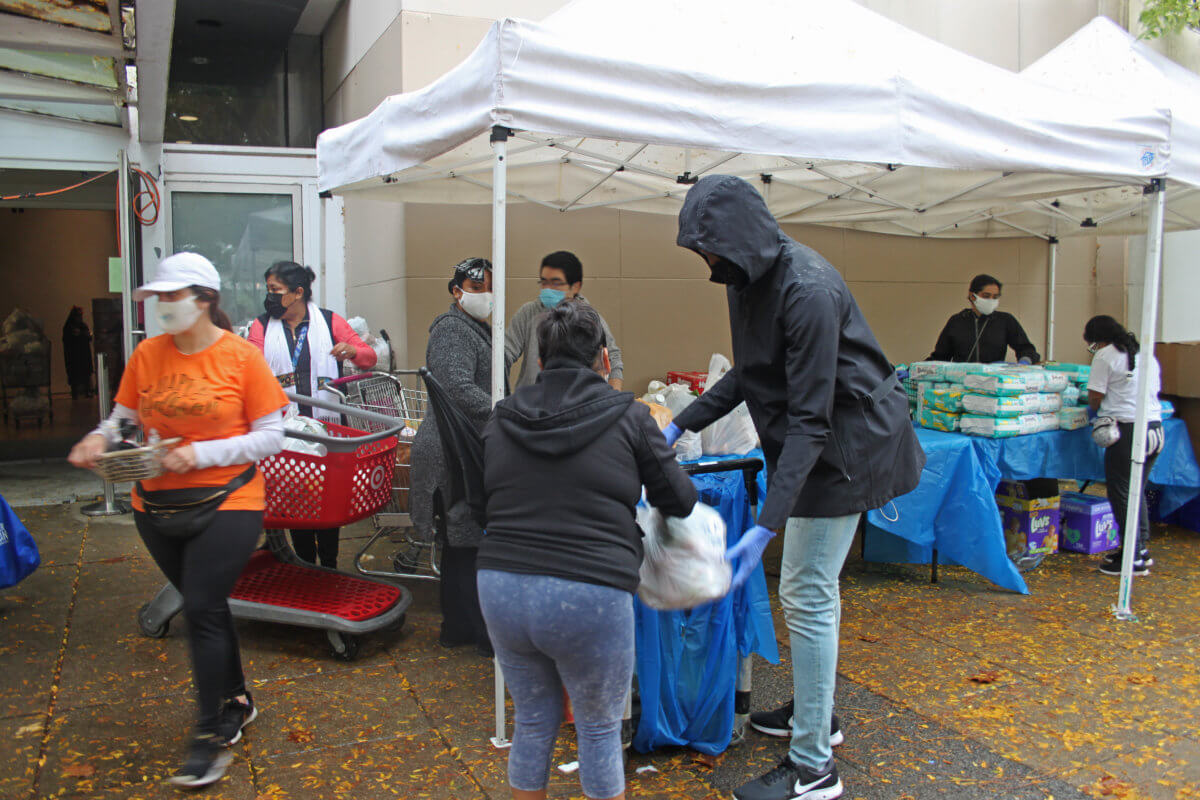
Charles assisted in the distribution, which also featured face painting, Halloween costumes, a Street Lab station for children to play in while waiting in line and a table of personal protective equipment and resource assistance from the Hispanic Federation.
Cruz, who dressed up as Mary Poppins, greeted her constituents and distributed candy to families in line for the food pantry. Cruz said they were thrilled to have Charles join them.
“The reality is that we’re seven months out from the beginning of the pandemic, but we’re nowhere near the end of the real crisis, the real economic, food, health crisis that’s been exacerbated by this pandemic, and so any time we have the opportunity to team up with an organization or a fellow elected, to be able to provide food, we’re going to take it,” said Cruz.
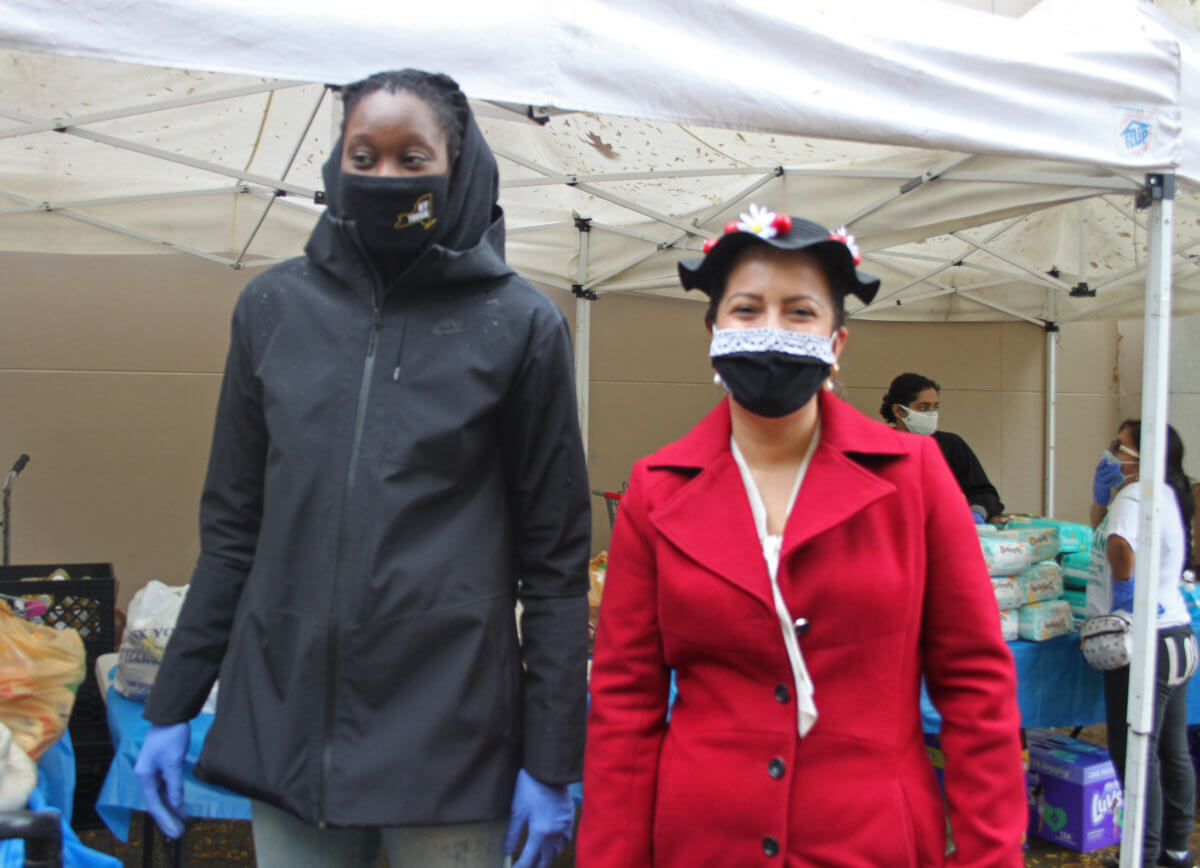
Cruz ran a food pantry for months, but it has come to and end as the nonprofit she partnered with, World Central Kitchen, a national organization created by Chef José Andrés, ran out of funds to serve New York.
“It’s key for our community, for the people that have a little bit extra to give, to reach out to organizations like Together We Can and La Jornada to give, because unfortunately our federal government failed us miserably at a time that we needed them,” said Cruz. “All we have is each other to depend on right now. The more we’re supporting each other, the faster we’ll hopefully get through the other side of this.”
La Jornada and Together We Can Food Pantry at Queens Museum was established in June to serve the immediate community. Participation in the food pantry is by advance registration, who are assigned a one-hour pickup window between 2 to 5 p.m. on Wednesdays. They distribute a week’s worth of fresh and nonperishable food items to families and households in need.
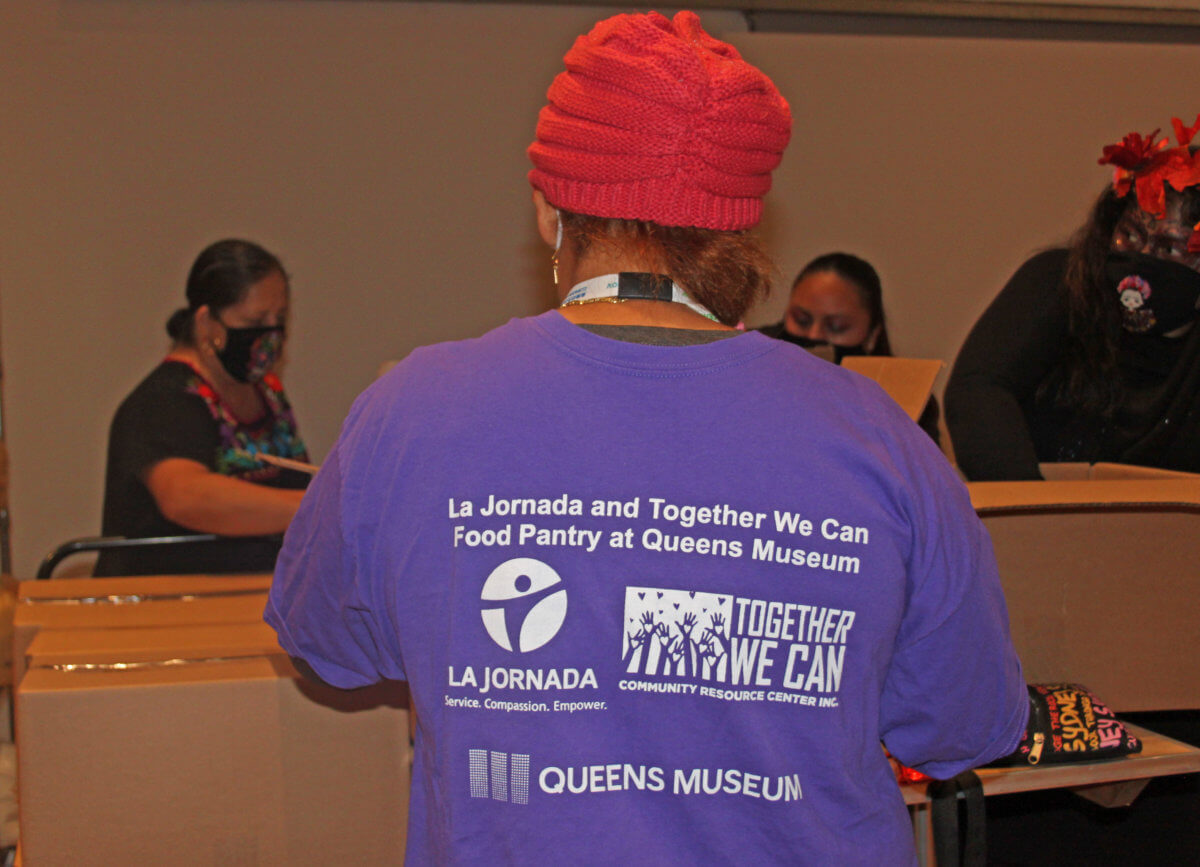
All the food distributed at the pantry is secured by La Jornada, one of the city’s hunger-relief organizations located in Flushing, while Together We Can, a volunteer-led nonprofit that services the residents of Jackson Heights, Elmhurst and Corona, helps recruit volunteers.
To date, the Queens Museum has fed more than 9,650 families in Corona.
Gianina Enriquez, community organizer at the Queens Museum, said the majority of their volunteers also live in Corona.
“They help the same community they belong to,” said Enriquez.
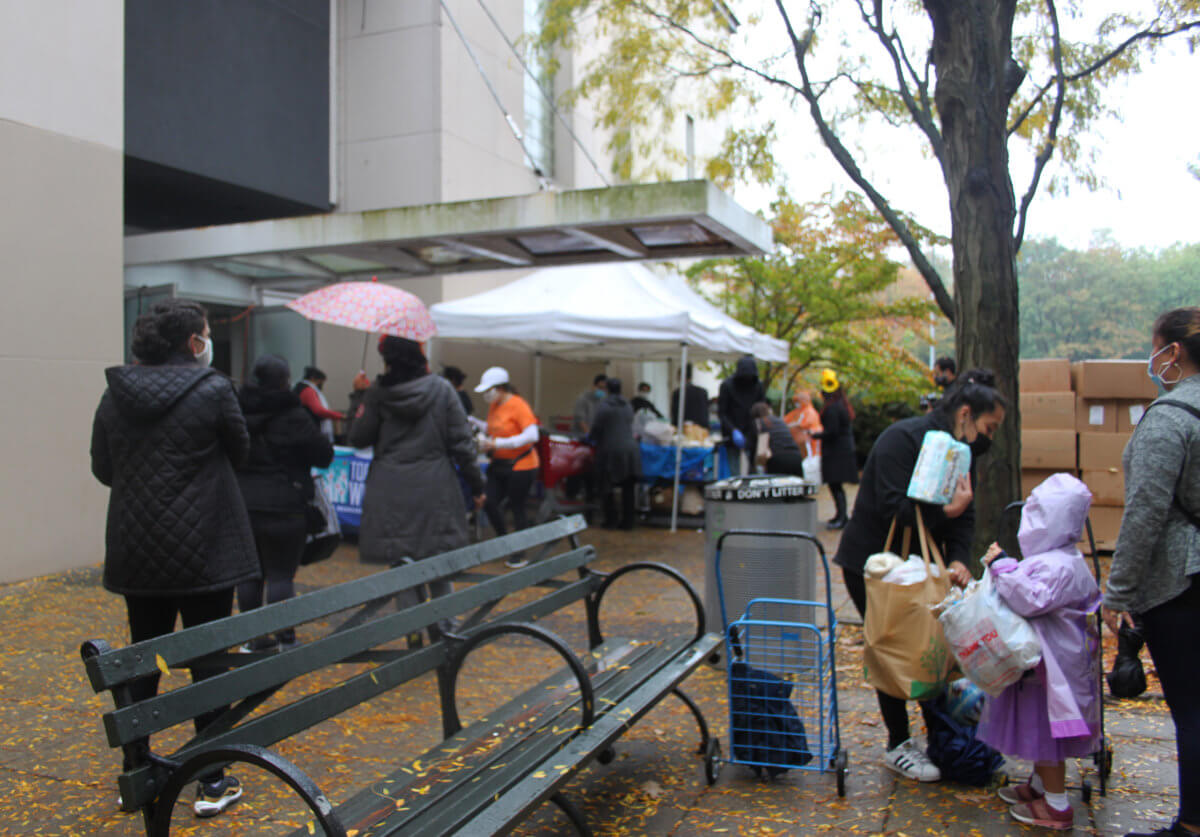
Rosas del Tepeyac, a Mexican folklore dance group for mothers and daughters, not only volunteered to help with the distribution, but also created a traditional Day of the Dead altar.
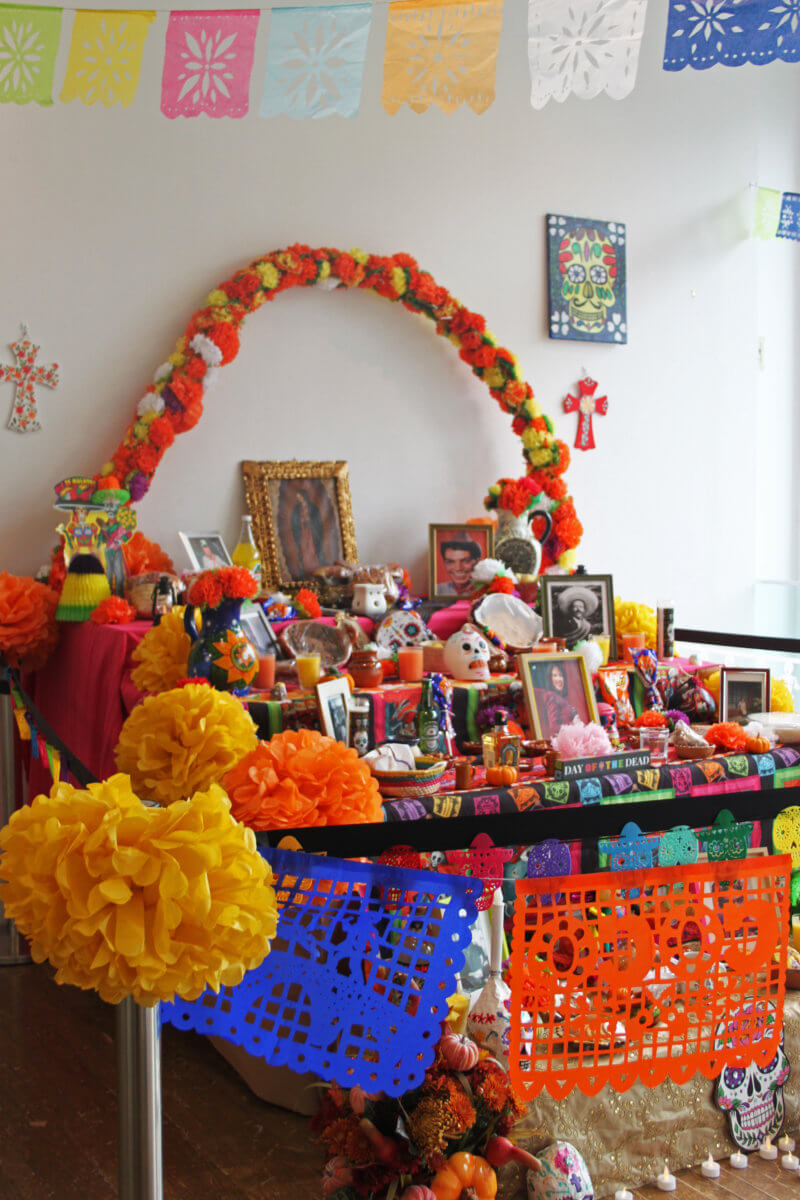
The altar, meant to remember family, friends and loved ones who have passed away, featured images of the group’s own loved ones as well as popular Mexican figures like Selena Quintanilla, Frida Kahlo and Chapulín Colorado.
“The altar is for our deceased, our deceased are never forgotten, we have the belief that they come to visit us every year,” said Esmeralda Gonzalez, a member of Rosas del Tepeyac.”It’s a beautiful Mexican tradition, and we’re happy because we can pass it down to our daughters.”
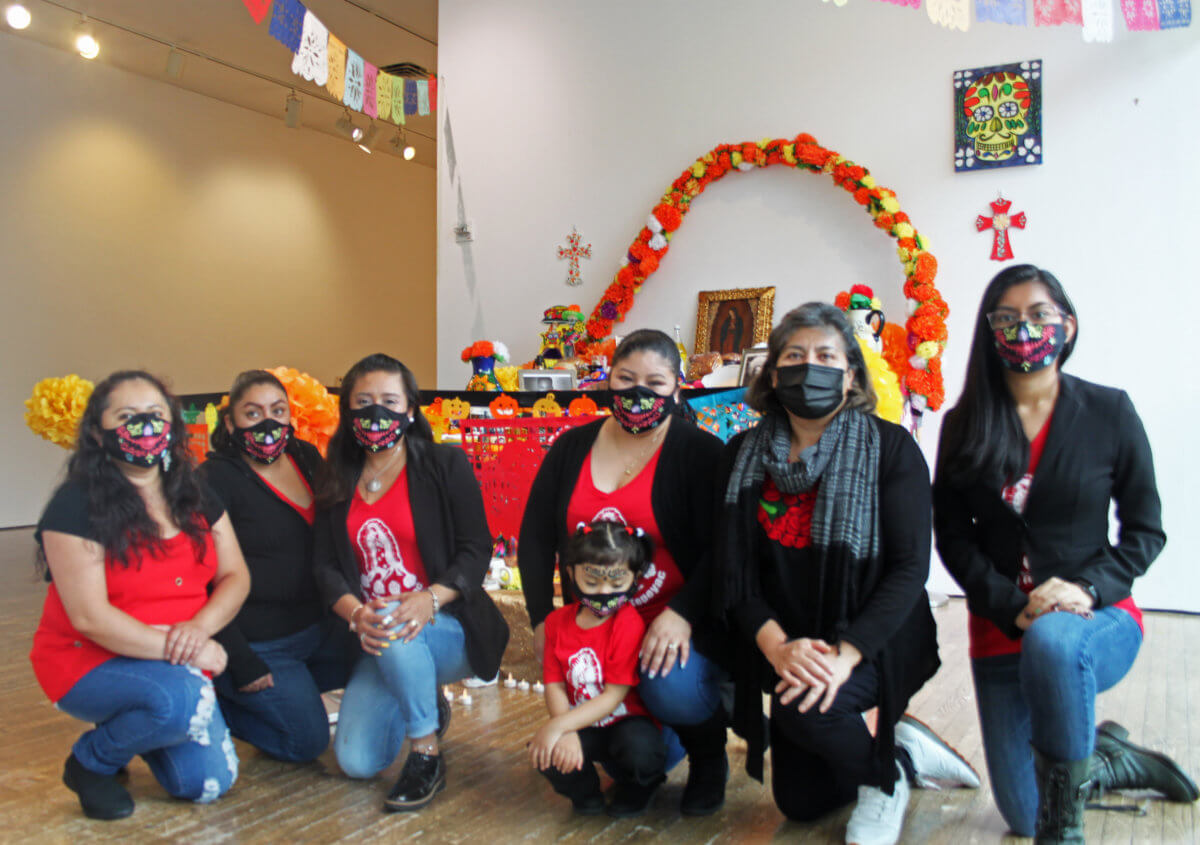
Given the food insecurity that has escalated since the pandemic began, and the recent change to the USDA’s Coronavirus Food Assistance program — which momentarily impacted La Jornada’s ability to work with certain vendors to obtain food — the Queens Museum hopes to scale up to serve the community.
“Since the Queens Museum began hosting a food distribution initiative in June, the food pantry service has been a tremendous success, feeding and caring for thousands of Queens residents and their families,” said Sally Tallant, president and executive director of the Queens Museum. “In the wake of the recent changes in the federal Coronavirus Food Assistance Program reducing food supplies to pantries in Queens right now, Queens Museum is hoping to be able to continue this essential service to the community as it is a proven lifeline for those who are enduring food insecurity and homelessness due to the pandemic.”

